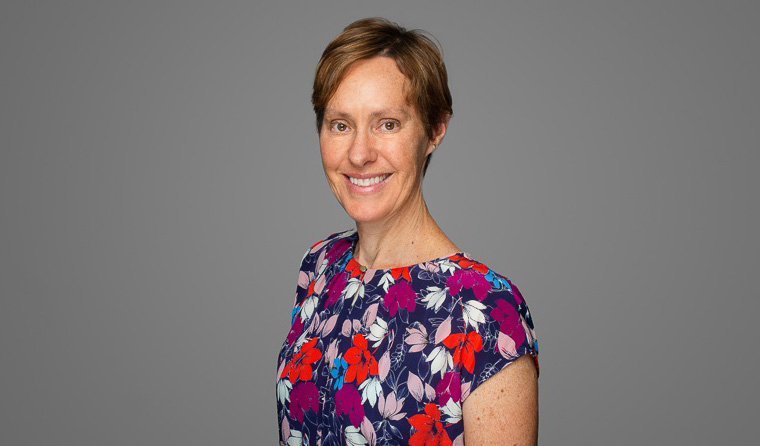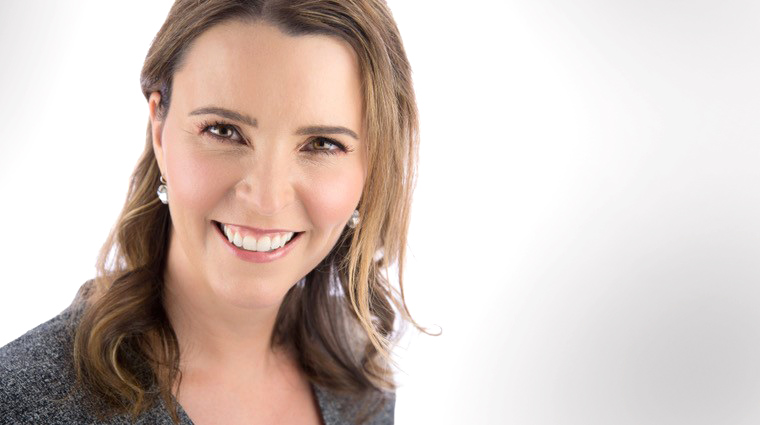News
‘A kick in the guts’: Frontline GPs respond to Medicare story
How serious is the fallout from this week’s ‘rort’ headlines? GPs around the country explain why they are so upset.
 Many GPs have found it hard not to see the reporting as a personal affront to their professionalism and ethics.
Many GPs have found it hard not to see the reporting as a personal affront to their professionalism and ethics.
There has been no hiding from the media’s Medicare coverage this week, particularly the ‘rorting doctors’ angle adopted by Nine Newspapers and the ABC.
Reporters behind the coverage would have known the defrauding doctor narrative would dominate.
Despite the scale of the allegations and potential reputational damage that doctors, in particular GPs, have faced as a result, it is worth noting that the RACGP was not given any chance to comment, or a right to reply, ahead of the stories emerging.
The inevitable pushback was immediate, both among GPs and beyond, and the reverberations are still playing out days later on social media, in the medical press and in newspaper opinion columns around the country.
Is it a passing storm? Or is the reporting, which has been sharply criticised by health professionals from many different quarters, likely to have a lasting impact on general practice?
To get a sense of how those ‘at the coalface’ have felt about the coverage, and their perception of the likely effects on general practice, newsGP reached out to a broad range of GPs – from high-profile faces to those simply getting on with their jobs.
The views ranged from ‘storm in a teacup’ to ‘another nail in the coffin’, although with a heavy slant towards the latter. Here are the themes that emerged, with some selected comments from those who responded.
Critical of reporting
RACGP Rural Chair Dr Michael Clements described the story as ‘storm in a teacup’ based on one person’s opinion.
‘There is certainly a large proportion of our membership offended by the statements, but … the accusations are baseless,’ he told newsGP.
‘Rural GPs will continue to get on with the job.’
Such a sanguine approach was a rarity among the GPs contacted. Many have taken the coverage much more to heart, with rural Victorian GP Dr Rebecca McGowan calling it ‘a kick in the guts’ while Tasmanian GP Dr Donald Rose said the ABC had lost a viewer.
High-profile Melbourne GP Mukesh Haikerwal lamented what he called ‘one-sided’ reporting, while his partner and fellow Altona GP Dr Karyn Alexander labelled it ‘sloppy journalism’ which followed a similar line to attacks on British general practice.
‘I myself am going to cancel my Age membership if there is no balance on this atrocious story,’ she told newsGP.
‘The articles in the media this week will likely further fuel public anger and the backlash will impact our front of house staff, our practice managers, our nurses and our GPs. They will become ill and they will leave in droves.’
 Dr Karen Magraith says it is far more common for GPs to under-bill than try to rort the system.
Dr Karen Magraith says it is far more common for GPs to under-bill than try to rort the system.
Many commentators have queried the evidence behind the $8 billion Medicare claim and called into question the diligence of the reporting in testing the claim. Toowoomba GP Dr Gabriel Roux shares the concerns.
‘We’ve all seen doctors investigated around us over the years and my concern has always been more about the impact of unnecessary harassment,’ he told newsGP.
‘For Medicare to be so active in pursuing small matters and then to overlook $8 billion of fraud per year is simply unthinkable.’
What about under-billing?
Dr Roux said the coverage has missed an area that could have formed a very different story.
‘I was once audited and it turned out that I actually under-claimed,’ he said.
‘When I pointed it out to Medicare, they ignored me and certainly did not pay out the deficit.
‘The inevitable effect of being investigated is for myself and colleagues to respond with under-billing. I concluded that this must be the ultimate target of Medicare in order to save money.’
In fact, Dr Roux said he has seen many GPs only billing item 23 for a 20-minute consultation, despite spending up to 45 minutes on a consultation.
‘If you calculate the impact on the industry of Medicare harassment resulting in under-claiming – especially by young doctors scared of everything – this might even tip the real scale the other way,’ he said.
A similar point is also made by Dr Karen Magraith, a Tasmania-based GP.
‘In my working life I have seen many more doctors who under-bill, through fear of audits, or through compassion for their patients,’ she told newsGP.
Gold Coast GP Dr Tammra Warby cited figures from the latest RACGP’s Health of the Nation report, which suggest that around 47% of GPs underbill.
‘This means we are working for free, which previous published evidence has supported,’ she told newsGP. ‘That is unsustainable for any profession, as it means relying on GP goodwill, which has rapidly waned especially during the pandemic.’
Meanwhile Adelaide GP Dr Alvin Chua pointed out the vast unpaid work many GPs do, giving examples such as fielding phone calls from patients and concerned relatives, dealing with Centrelink forms, and filling requests for patients who have forgotten repeat scripts.
‘Do not get me started on how much money I am actually owed by Medicare,’ Dr McGowan said, simply.
Impact on patients
Many of the GPs contacted by newsGP are concerned about the unintended consequences on patients the coverage might cause.
Dr Rose said he is abandoning pro-bono work and billing gaps for all patients where possible. He also said the coverage has prompted him to begin ‘quiet quitting’.
‘I have not needed to work for many years but felt I needed to during the pandemic,’ he said. ‘This latest round of doctor bashing has changed my view.’
Dr McGowan reports a similar trend among her contemporaries.
‘So many of my female colleagues, the Generation X mob in their 50s, are retiring early [or] looking at non-clinical work,’ she said.
‘We have had enough of the gaslighting and the coercive control of the abusive relationship that is Medicare.’
 Dr Tammra Warby has questioned the timing of the coverage, which has come just as recognition was growing that Medicare is underfunded.
Dr Tammra Warby has questioned the timing of the coverage, which has come just as recognition was growing that Medicare is underfunded.
Dr Magraith said she has observed a similar mood among GP colleagues, with many choosing locum work or jobs with fixed salaries that do not rely on MBS rebates, reducing hours or leaving the profession altogether.
‘All of these things unfortunately reduce the availability of ‘full spectrum’ GPs able to offer continuity of care,’ Dr Magraith said.
‘It’s patients who will really miss out, especially in areas of disadvantage.’
Distracting from reform
For Dr Mariam Tokhi, a Melbourne-based GP specialising in refugee health, the coverage has been an unwelcome diversion away from healthcare’s most pressing issues.
‘The health system needs reform to support GPs to work with the most vulnerable: those with chronic illness, multimorbidity, and social disadvantage,’ she told newsGP.
‘How do we create systems of genuine care? How do we create systems that are easy for clinicians and patients to navigate? How do we ensure that those who need it most, can get care when they need it?
‘We need policymakers to consider deeply how to support this work.
‘I’m concerned that if governments get distracted by the narrative of “rorting and fraud”, that we will sleepwalk through a primary care crisis.’
Dr Warby noted the unfortunate timing of the coverage.
‘This accusation came just as there was progress and recognition that Medicare is underfunded, and not fit for purpose, particularly for care of chronic complex and vulnerable patients,’ she said.
‘There needs to be a reset to look at that again, which is the actual story.’
‘We were already struggling’
Most of the GPs contacted by newsGP said they were concerned about the damage to the profession’s morale.
‘We’ve got to a position where we are supporting improvements to the system for better patient outcomes,’ Dr Haikerwal said. ‘In the face of significant effort, this was nothing short of hurtful, demeaning and injured the already low morale.’
Dr Chua agrees.
‘I loved my work as well as well as enjoyed the interactions with my patients over the years,’ Dr Chua said.
‘But I’m tired. I’m burnt out. I’m fatigued. And mostly I no longer have the physical and mental capacity to conduct my job in my chosen vocation.’
Dr Cathy Andronis, Chair of RACGP Specific Interests Psychological Medicine, said many GPs viewed the story as a personal affront, and stressed the importance of self-care for those affected.
‘This ideally is dealt with a mindful “time out” and self-compassionate care for our own wounds within,’ she told newsGP.
‘This too shall pass. When you bring your calmer prefrontal lobe back online you know you’re “good enough” and you don’t have to carry the world’s worries on your shoulders.’
Log in below to join the conversation.
fraud Medicare rort
newsGP weekly poll
As a GP, do you use any resources or visit a healthcare professional to support your own mental health and wellbeing?